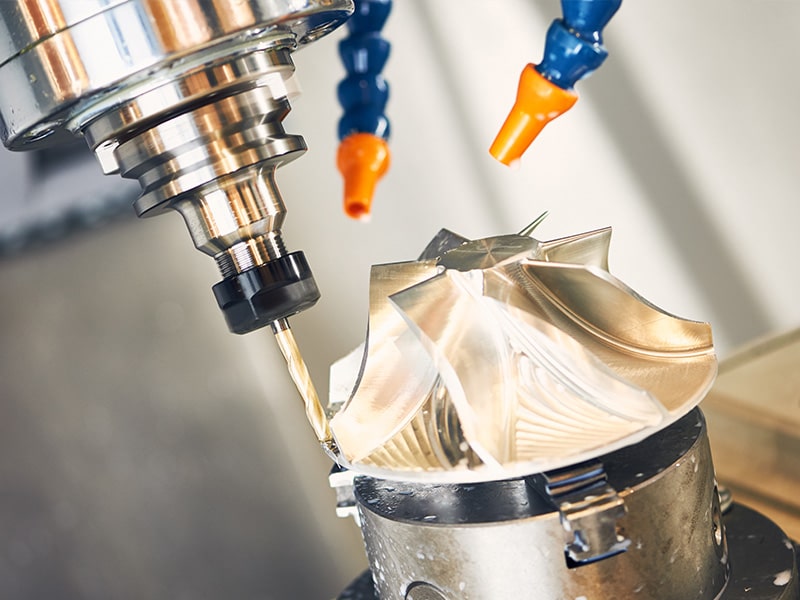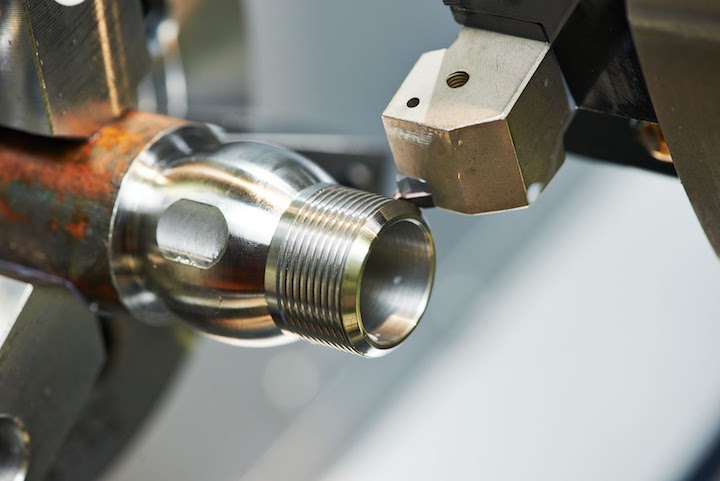CNC Machining: The Spine of Trendy Precision Manufacturing
CNC Machining: The Spine of Trendy Precision Manufacturing
Blog Article
CNC machine machining is one the most transformational technologies available in contemporary manufacturing. It has changed the fundamental way industry produces components and parts and components, delivering a level of quality, efficacy as well as versatility not comparable to traditional techniques. CNC machining makes use of computerized controls and machines to carry out various functions like cutting drilling, milling, or grinding of materials that range from plastics and metals to composites and wood. In automatizing the manufacturing process, CNC machining eliminates many of the errors and inconsistencies caused by manual work. This results in a machine which can create highly precise components more quickly as well as with more consistency, stimulating innovation in industries ranging such as aerospace and consumer electronics.
One of the key advantages of CNC machine is the ability to produce highly detailed and complicated components that are nearly impossible to construct using conventional manufacturing processes. CNC machines operate based upon digital design, which means that once the design of a piece is programmed into the machine, it is able to be accurately reproduced and consistent. This is especially beneficial for industries such as automotive, aerospace, and electronic industries, where precision is essential. In addition, CNC machining is capable of working with a wide selection of materials, from soft plastics to tough metals, enabling manufacturers to make parts that are able to meet certain needs for toughness, durability and resistance to heat. The versatility of CNC cutting has provided opportunities for design and engineering.
Alongside its accuracy, CNC machining is also acknowledged for its speed and value. Traditional machining methods often require skilled workers to manually adjust and control the machinery and can take a long time and expensive. CNC machining eliminates much of the manual labour required in production since machines operate completely autonomously over long time periods after they have been set up. This enables manufacturers to improve productivity without needing to invest in additional workers or other resources. In addition CNC machines can be capable of performing several operations using a single configuration which reduces the requirement for part transfers and repositioning, which saves time and minimizes the risk of errors. Automation results in faster production cycles and lower costs per piece, which makes CNC machine machining a viable option for businesses looking to streamline their manufacturing processes.
CNC machining's versatility is another reason it has become a cornerstone of manufacturing today. This technology is compatible with a wide range of different materials, ranging from tough metals such as titanium and stainless steel to softer wood and plastics. It is therefore suitable to make parts suitable for a variety of industries, for example aerospace, automotive medical, electronics, and consumer products. Additionally, CNC machines can perform various operations including cutting, milling, drilling, engraving, and even 3D contouring with a single configuration. This multifunctionality reduces the need for multiple machines and part transfers, thereby increasing the effectiveness. For prototypes, whether they are made or producing huge batches of component parts, CNC machining offers the versatility to satisfy a range of production needs. To acquire additional information please head to https://www.premiumparts.com/services/cnc-machining
Alongside efficiency and speed, CNC machining is valued by its value-for-money, specifically for large-scale production runs. After the initial set-up and programming of the machine have been completed, producing additional parts requires only minimal effort, which reduces total production costs. If you are a manufacturer working with costly materials like aerospace-grade alloys, CNC manufacturing reduces waste through improving the process of cutting, making sure that each piece can be produced without losses in material. Its precision and efficacy make CNC the ideal tool for both prototyping and full-scale manufacturing, since it allows manufacturers to quickly test and tweak designs as well as keep costs of production in check.
It is predicted that the future for CNC Machining is promising, as technological advancements continue pushing the boundaries of what these machines can do. While CNC machines grow increasingly sophisticated, they're increasingly integrated with other technologies that include 3D printing as well as robotics to create hybrid manufacturing processes that combine the strengths of multiple techniques. In addition, the growth of smart manufacturing as well as technological advancements like Industrial Internet of Things (IIoT) has led to greater connection and automatization in CNC machining. It allows CNC machines to connect with each with each other and alter their operations with real-time information from sensors. As the technology continues to develop, CNC machining will remain essential to modern manufacturing offering even greater accuracy along with speed and adaptability for the coming generations of goods.